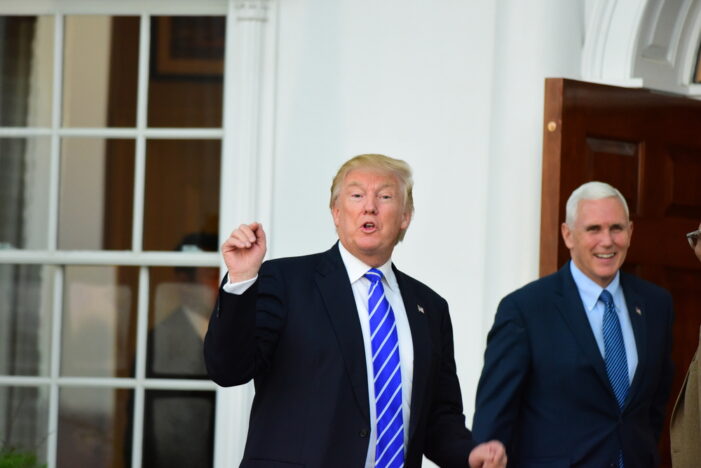By: Aaron Reichlin-Melnick |americanimmigrationcouncil.org | Editorial credit: a katz / Shutterstock.com
As we continue to see sweeping changes to immigration enforcement inside the United States, the Trump administration has also begun taking steps to restrict immigration to the United States. Over the past two weeks, the Trump administration announced that it was intending to bring back multiple policies from Trump’s first term that will restrict immigration.
Here’s what we know: After taking office, President Trump issued an executive order aiming to reconstitute the “extreme vetting” policies of his first administration. These actions add significant red tape and administrative barriers to the legal immigration system and are likely to raise the cost and difficulty of obtaining a visa for people seeking to enter the United States legally.
- Expanded biometrics & surveillance: On August 11, U.S. Citizenship and Immigration Services (USCIS) took steps to restart the process towards implementing a 2020 proposed regulation (subsequently withdrawn by the Biden administration) to vastly expand biometric collection by over 60% for immigration benefits. The rule would authorize USCIS to collect not only fingerprints as it does now, but also iris scans, palm prints, DNA (even from U.S. citizens), and voice prints from applicants for benefits. It would also authorize USCIS to engage in “continuous immigration vetting,” subjecting all noncitizens to increased levels of automated surveillance. The proposed rule could be opened to comments any time in the next few months.
- New visa restrictions: On August 7, a proposed regulation cleared final review at the White House that would attempt to eliminate “duration of status” for foreign students, researchers, exchange visitors, and international media on F, J, and I visas, and instead cap each status at a maximum of four years. Currently, foreign students on F visas, researchers and exchange visitors on J visas, and members of the international media on I visas are generally admitted for the “duration” of their program, meaning they are not required to repeatedly renew visas so long as their status remains unchanged. This regulation was first proposed in 2020 but was never implemented. The previous regulation also contained even stricter limitations on visas from certain countries with high visa overstay rates, primarily African countries. If implemented now, the regulation would force many international students to have to navigate the process of renewing their visas internationally before completing their course of study, at risk of being unable to do so — adding costs and uncertainty and further reducing the attractiveness of American higher education. Once the regulation is proposed, there will a period for public comment.
- Renewed “visa bond” program: On August 5, the Trump administration announced a new “visa bond” pilot program, reinstating a proposal first proposed in 2020 but never implemented due to the COVID-19 pandemic. Under this plan, beginning on August 20, the Trump administration will require any visa applicant from Malawi or Zambia applying for a tourist visa to pay a $5,000, $10,000, or $15,000 refundable “visa bond” and restrict entry for those people to three specific U.S. airports. While the program’s impact is limited (given that only 11 such visas were issued in Fiscal Year 2024), the administration could easily expand the program to additional countries. This pilot program layers on top of a mandatory $250 visa bond fee for all non-immigrant visa applicants as mandated by Congress in H.R. 1.
- New Diversity Visa requirements: On August 5, the Trump administration proposed a new regulation which would require applicants for a Diversity Visa to have a valid passport at the time of applying for the Diversity Visa lottery. In 2019, the first Trump administration attempted to implement this rule without going through standard rulemaking procedures, which resulted in the policy being overturned in court in 2022. When first implemented in 2019, the rule led to Diversity Visa lottery applications dropping by more than half (with the largest drop concentrated among African countries), as many individuals applied for the lottery before spending money on getting a passport they might not need. Comments on this rule are due on September 19.
Why is this important? These regulations would significantly increase the red tape and expense of obtaining a visa for many people seeking to come to this country and will reduce the competitiveness of the United States in the global market for talent. This may impact hiring among several industries which rely on foreign talent, including doctors who practice in rural hospitals with J visas. In addition, government collection of millions of biometric profiles of immigrants and noncitizens infringes on core civil liberties and privacy rights.

